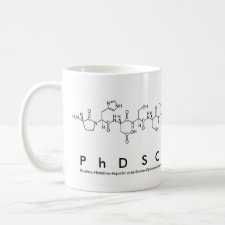
Authors: El-Kosasy AM, Kamel AH, Hussin LA, Ayad MF, Fares NV
Article Title: Mimicking new receptors based on molecular imprinting and their application to potentiometric assessment of 2,4-dichlorophenol as a food taint.
Publication date: 2018
Journal: Food Chemistry
Volume: 250
Page numbers: 188-196.
DOI: 10.1016/j.foodchem.2018.01.014
Alternative URL: https://www.sciencedirect.com/science/article/pii/S0308814618300141
Abstract: Innovative host-tailored polymers were prepared, characterized and used as recognition elements in potentiometric transducers for the selective quantification of 2,4-dichlorophenol (DCP).The polymer beads were synthesized using DCP as a template molecule, acrylamide (AM),methacrylic acid (MAA) and ethyl methacrylate (EMA) as functional monomers and divinylbenzene (DVB) and ethylene glycol dimethacrylate (EGDMA) as cross-linkers. The sensors were fabricated by the inclusion of MIPs in plasticized polyvinyl chloride (PVC) matrix. Response characteristics of the proposed sensors revealed anionic slopes of -59.2, -49.7 and -80.6 mV/decade with detection limits of 5.6 x 10-5, 5.9 x 10-5 and 13.2 x 10-5 mol/L for MIP/AM/DVB, MIP/MAA/DVB and MIP/EMA/EGDMA membrane based sensors, respectively. Good selectivity was observed over common inorganic/organic anions. Validation of the assay method according to IUPAC recommendations was justified ensuring the synthesis of good reliable novel sensors for DCP determination. The method was successfully applied for routine analysis of food taint in fish and fish farms water samples.
Template and target information: 2,4-dichlorophenol
Author keywords: 2,4-Dichlorophenol, Food taint, molecular imprinting polymers, Potentiometric transduction



Join the Society for Molecular Imprinting

New items RSS feed
Sign-up for e-mail updates:
Choose between receiving an occasional newsletter or more frequent e-mail alerts.
Click here to go to the sign-up page.
Is your name elemental or peptidic? Enter your name and find out by clicking either of the buttons below!
Other products you may like:
 MIPdatabase
MIPdatabase









